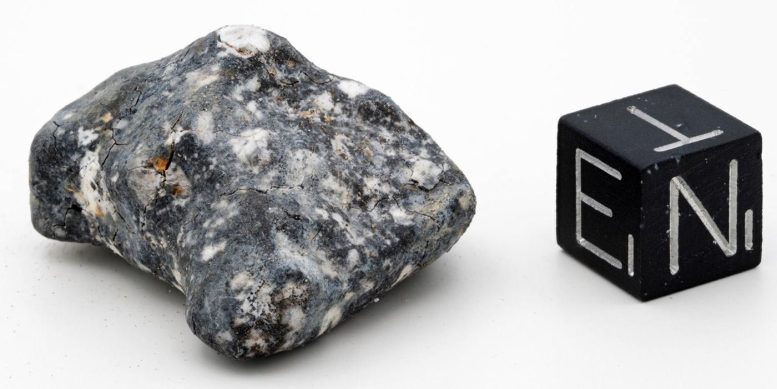# Asteroid Impact Near Berlin Reveals Rare Aubrite Treasures

*[Aubrite meteorite from asteroid 2024 BX1, photographed at the Museum für Naturkunde Berlin by Laura Kranich, a Freie Universität MSc student and member of the Arbeitskreis Meteore, who participated in the search and found this meteorite near the village of Ribbeck, Germany. Credit: Museum für Naturkunde Berlin by Laura Kranic]*
The first examinations of one of these pieces with an electron beam microprobe confirmed that the strange meteorites that fell near Berlin on January 21, 2024, belong to a rare group called “aubrites.”
According to SETI Institute meteor astronomer Dr. Peter Jenniskens, these meteorites were difficult to spot because they looked like other rocks from a distance, but were distinguishable close up.
Jenniskens and a team of researchers and students from various institutions in Berlin searched the fields just south of the village of Ribbeck to find these meteorites days after the fall. Even with the help of meteor astronomers, the search team initially struggled to spot the meteorites on the ground. They were eventually guided by a Polish team of meteorite hunters who had identified the first find.
The importance of meteorite collections for research was emphasized by Dr. Ansgar Greshake, scientific head of the museum’s meteorite collection, who highlighted the rarity of this type of meteorite in collections worldwide.
Aubrites are distinct from other meteorites in appearance, resembling a gray granite and mostly consisting of the magnesium silicates enstatite and forsterite. They contain little iron and have a glassy crust that is different from that of most other meteorites, making them difficult to detect in the field.














